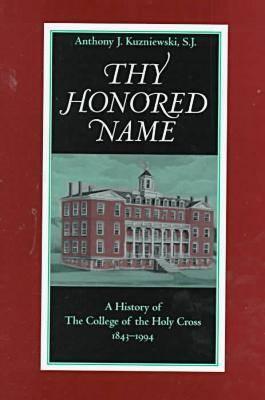Opened only nine years after the Catholic academy in Boston was destroyed by nativists, the College of the Holy Cross was a pet project of Boston's second bishop, Benedict Fenwick-a Jesuit college in the midst of Yankee New England. At first an isolated, exclusively Catholic operation offering a seven-year humanities program, the College failed to obtain a charter by the Massachusetts General Court until 1865. After 1900, Holy Cross became a four-year college in the American pattern and advanced to its present level by integrating important principles of Jesuit liberal arts education with the academic traditions of the strongest educational region in the nation.
Utilizing the universal Jesuit Plan of Studies, the college's leaders at first stressed connections with other Jesuit institutions in a program that emphasized classical languages, philosophy, history, mathematics, and natural sciences. About 1900, a second era began when the curriculum was altered to bring Holy Cross into conformity with the modern educational pattern: college offerings were amplified and the prep school was dropped. During the 1960s, a third era opened. It was characterized by coeducation, a more open curriculum, growing involvement of non-Jesuit faculty and administrators, the transition to a board of lay trustees, and rising academic standards as Holy Cross took its place as the foremost Jesuit school among four-year liberal arts colleges. Thy Honored Name highlights the confluence of two strong educational traditions-Puritan and Jesuit-and the growing appreciation of their compatibility. It is also an account of efforts to promote academic excellence without losing an authentically Jesuit identity in a region where many formerly religious schools have become secular. The book will hold interest for persons who study educational and religious history, for individuals interested in the development of New England and Worcester, and for friends of Holy Cross.
